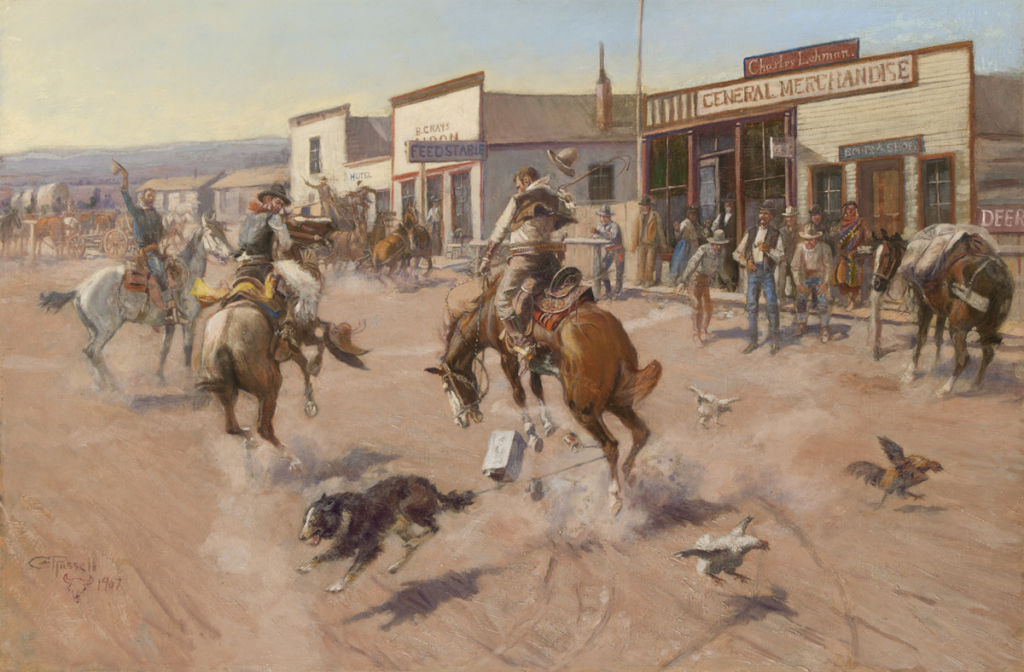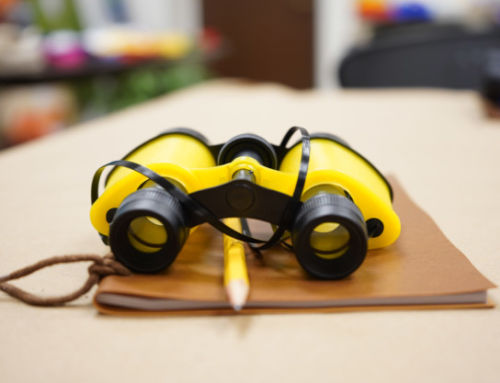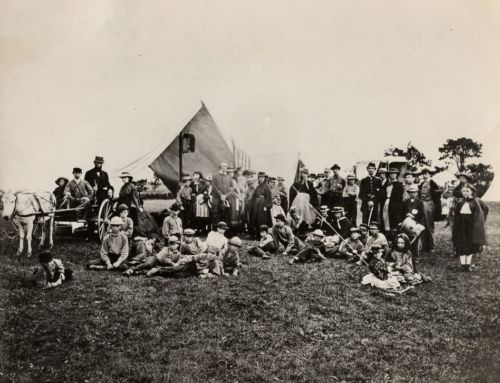This summer during our Art of Story children’s program, participants learn about the elements of storytelling by exploring the artwork in our galleries. To help illustrate the power of narrative, our docents often tell a story inspired by some of the paintings. A favorite among the collection is Russell’s Utica.

Charles M. Russell, Utica (A Quiet day in Utica), 1907, Oil on canvas, 24 1/8 x 36 1/8 inches
Utica and the upper Judith River country in Montana were among the last frontiers to be settled because of the frequent Indian raids and their great distance from the protection of forts. Family men hesitated to make their homes in the area until after the gold rush of 1879. The few scattered settlers before that were bachelors, the first of which to build a home, plow a furrow, and plant a crop was John Murphy.
Murphy had come from Utica, New York. Soon others from the same town followed. Murphy laid out some of the lots and plotted the village, which was named Utica, after his home town.
One incident in 1881 created a lot of excitement in Utica. Before Utica had an officially appointed postmaster, John Murphy’s cabin served as a post office for the convenience of settlers. It was winter and the roads were heavy with deep snow. The mail carrier’s wagon broke down. When he left on horseback, he took only the letters, leaving behind a heavier sack for the next trip, which would be in a couple of months or so. The remaining sack got kicked under Murphy’s bunk on the dirt floor of the cabin, becoming the dog bed for the next several months. Eventually, the sack was covered with dust and forgotten.
When the snow was gone, about middle of May, a detachment of soldiers from Fort McGinnis rode into Utica. They had been trailing a sack of money lost several months prior and asked if any had been found. The lost sack contained the $40,000 payroll for the soldiers at Fort McGinnis and had disappeared. While the men searched the cabin, Murphy remembered about the sack the dog had been sleeping on all winter.
“That’s it!” gasped the soldier. “That’s the $40,000 we’ve been moving heaven and earth to find, and it’s been a bed for your dog!”
After that, three of Utica’s doctors built the post office building on the east side of Main Street.
Adapted from Old Utica by Charles Waite.






That was a very interesting and funny story about the sack of money missing for several months. The same thing still happens today, were mail goes missing in a Post Office for sometime years before it is finally discovered.
It’s a favorite story, as well as painting, for the kids. I guess the tale still resonates for audiences today!